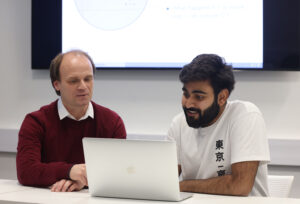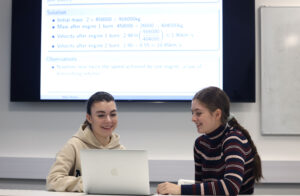In the final year, you will cover some specialised work in financial mathematics. Subsequently, you will begin to study more advanced ideas in probability theory and statistics as well as stochastic modelling, econometrics and finance.
This programme is designed to prepare you for a career in the banking sector, pension or investment funds, hedge funds, consultancy and auditing firms or government regulators.
The course prepares students to be professionals who use mathematical models to analyse and solve financial problems under uncertainty. The programme will provide a useful perspective on how capital markets function in a modern economy.
Choose four optional modules: two from semester 1 and two from semester 2. At least two must be MATH modules.
On the 2+2 programme, you'll study your third and fourth years at the University of Liverpool. These will be year two and year three of the University of Liverpool's programme of study.
Programme details and modules listed are illustrative only and subject to change.








